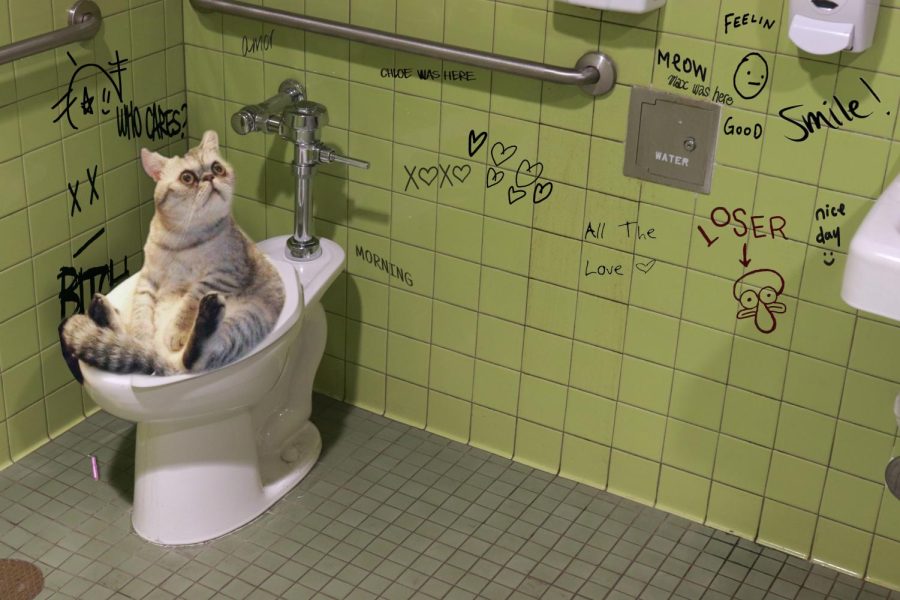Prevent Clogs and Damage: Don't Flush Cat Poop Down Your Toilet - Professional Insights
Prevent Clogs and Damage: Don't Flush Cat Poop Down Your Toilet - Professional Insights
Blog Article
Just about every person may have their own thinking on the subject of Don’t flush cat feces down the toilet.

Introduction
As pet cat proprietors, it's important to be mindful of exactly how we dispose of our feline good friends' waste. While it may seem convenient to purge feline poop down the commode, this technique can have harmful consequences for both the setting and human health and wellness.
Ecological Impact
Purging cat poop presents hazardous virus and parasites into the water supply, posing a significant threat to aquatic ecological communities. These pollutants can adversely impact aquatic life and concession water quality.
Health Risks
Along with ecological issues, purging pet cat waste can also position health and wellness threats to human beings. Feline feces may contain Toxoplasma gondii, a parasite that can cause toxoplasmosis-- a possibly extreme disease, especially for expectant females and individuals with weakened body immune systems.
Alternatives to Flushing
Thankfully, there are much safer and extra liable ways to take care of pet cat poop. Take into consideration the complying with alternatives:
1. Scoop and Dispose in Trash
The most usual method of getting rid of pet cat poop is to scoop it right into a biodegradable bag and toss it in the garbage. Make sure to use a committed litter scoop and throw away the waste promptly.
2. Use Biodegradable Litter
Opt for eco-friendly pet cat litter made from products such as corn or wheat. These trashes are environmentally friendly and can be safely disposed of in the trash.
3. Hide in the Yard
If you have a backyard, think about hiding cat waste in a marked location far from veggie gardens and water resources. Make certain to dig deep sufficient to stop contamination of groundwater.
4. Install a Pet Waste Disposal System
Invest in a family pet garbage disposal system particularly developed for cat waste. These systems utilize enzymes to break down the waste, decreasing odor and ecological impact.
Final thought
Responsible pet dog ownership extends beyond offering food and shelter-- it additionally entails correct waste management. By avoiding flushing pet cat poop down the toilet and going with alternate disposal approaches, we can lessen our environmental impact and secure human wellness.
Why You Should Never Flush Cat Poop Down the Toilet
A rose by any other name might smell as sweet, but not all poop is created equal. Toilets, and our sewage systems, are designed for human excrement, not animal waste. It might seem like it couldn’t hurt to toss cat feces into the loo, but it’s not a good idea to flush cat poop in the toilet.
First and foremost, assuming your cat uses a litter box, any waste is going to have litter on it. And even the smallest amount of litter can wreak havoc on plumbing.
Over time, small amounts build up, filling up your septic system. Most litter sold today is clumping; it is made from a type of clay that hardens when it gets wet. Ever tried to scrape old clumps from the bottom of a litter box? You know just how cement-hard it can get!
Now imagine just a small clump of that stuck in your pipes. A simple de-clogger like Drano isn’t going to cut it. And that means it’s going to cost you big time to fix it.
Parasitic Contamination
Believe it or not, your healthy kitty may be harboring a nasty parasite. Only cats excrete Toxoplasma in their feces. Yet it rarely causes serious health issues in the cats that are infected. Most people will be fine too if infected. Only pregnant women and people with compromised immune systems are at risk. (If you’ve ever heard how women who are expecting are excused from litter cleaning duty, Toxoplasma is why.)
But other animals may have a problem if infected with the parasite. And human water treatment systems aren’t designed to handle it. As a result, the systems don’t remove the parasite before discharging wastewater into local waterways. Fish, shellfish, and other marine life — otters in particular — are susceptible to toxoplasma. If exposed, most will end up with brain damage and many will die.
Depending on the species of fish, they may end up on someone’s fish hook and, ultimately on someone’s dinner plate. If that someone has a chronic illness, they’re at risk.
Skip the Toilet Training
We know there are folks out there who like to toilet train their cats. And we give them props, it takes a lot of work. But thanks to the toxoplasma, it’s not a good idea.

As an enthusiastic person who reads about Can You Flush Cat Poop Down The Toilet?, I figured sharing that excerpt was sensible. Liked our piece of writing? Please share it. Help somebody else locate it. Thanks for your time invested reading it.
Schedule Report this page